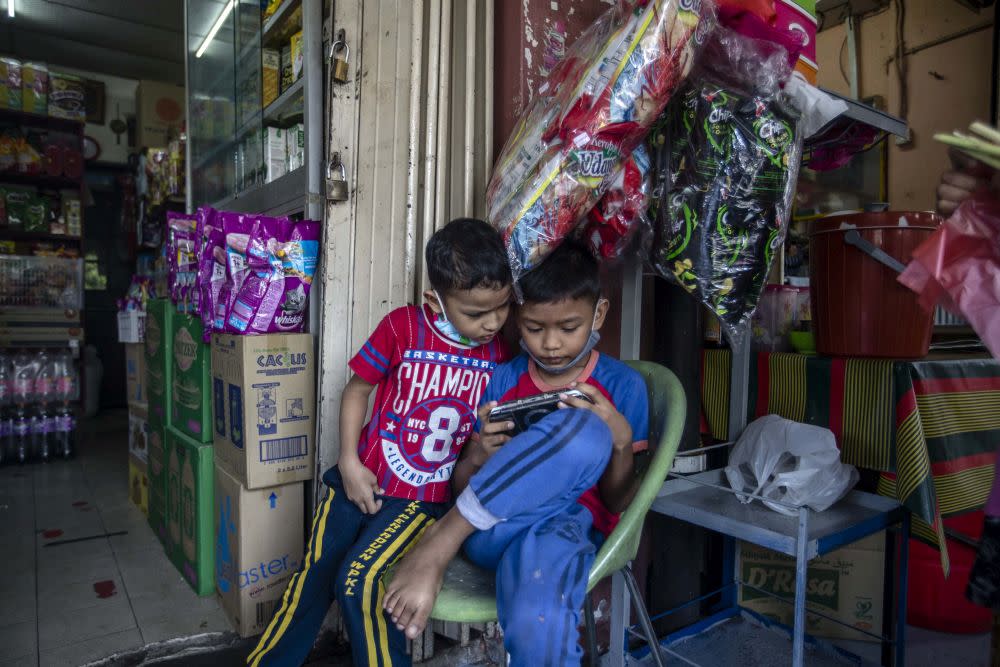Survey: As Covid-19 aid dries up, Klang Valley’s poorest families survive on vegetables

KUALA LUMPUR, May 11 — Klang Valley’s poorest families fear they could starve if no help comes in the face of prolonged movement restrictions, with most still left jobless by a pandemic that is showing no signs of abating any time soon, two United Nations agencies have warned.
Low-income households in the capital city’s public housing flats continue to be engulfed by unemployment and depressed earnings a year after the first movement control order (MCO) was enforced, leaving most struggling to buy even the most basic necessities, they said.
While unemployment did fall since December last year, when Covid-19 restrictions were lifted and allowed the economy to reopen, it remained 2.5 per cent higher than at pre-crisis level, reported the United Nations Children Fund (Unicef) and United Nations Population Fund (UNFPA).
Overall median income (excluding social transfers) also stood 5 per cent lower than at pre-crisis level. Although earnings among female-headed households and disabled-earning households did recover by March this year, they remain low at just RM1,300 and RM1,200 respectively.
This has forced many of these families to depend on social transfers. But with no signal that more relief aid would be disbursed as the government enforces a third nationwide MCO, many of these already-vulnerable households feel they could be pushed to the brink.
“We can only afford cheap vegetables. Then if we extra money, we buy fruits,” said Ms S, one of the female heads of households that participated in the year-long study.
Direct social assistance from the government now forms up to 11 per cent of overall household income, the two UN agencies said in its final edition of the “Families on The Edge” report released this afternoon.
For female-headed households like Ms. S, the portion of income consisting of social transfers is higher by nearly a fifth. For households headed by persons with disability, welfare assistance form close to a third of overall income.
“Although government assistance has been considerable, more than half of households remain unable to meet essential expenses,” the report said.
“Roughly six in 10 are unable to purchase enough food for their families, and one in two are either unable to pay utility bills or mortgage or rent on time,” it added.
“One in four participants report continuing to reduce food intake while roughly one in three reported some or severe difficulties in providing enough money for their children to buy meals while at school.”
The hardship faced by these families predates the pandemic, which makes them worse off under the present health crisis. The UN study said a majority of participants doubted they could survive without “continued, regular and reliable” financial assistance.
“The fact that food baskets remain another attractive policy reflects the persistence of severe hardship among many participant families,” the report said, noting that many no longer see the labour market as a reliable source of income or its ability to alleviate their plight.
Previous survey rounds found low-income families to be disproportionately affected by the crisis across a wide range of outcome areas, with female-headed households and households headed by persons with disabilities reporting the deepest negative impacts.
This included what researchers of the report called an underlying “mental health pandemic” stemming from living cost pressure, with children from these households particularly vulnerable.
“Children suffered the most, they face multiple deprivations — from severe reduction of healthy meal intake to emotional well-being,” said lead researcher for the two UN agencies, Muhammed Abdul Khalid, who heads local public policy consultancy, DM Analytics.
“These would have a long term negative implications, and if education is key to upward mobility, we are denying these kids an equal opportunity to do well in the future... progress of a nation should be measured on how we take care of the children,” he added.
“The most vulnerable members of society, and clearly we should, and we must do much more.”
Previous studies found children from these families, living in cramped flats often just 650 square foot big, experienced considerable barriers to effective home-learning.
Many cannot afford computers and reported learning only through their smartphones, resulting in loss of interest in continuing with school.
Six of 10 parents from the survey’s participating families said their children have lost interest in learning, and is highest among female-headed households. As a consequence, more parents reported increased anxiety about their future, with one of five admitting to being depressed.
Despite unveiling several relief Covid-19 spending packages totalling more than RM350 billion, most of the key aids under the programmes have lapsed, even for those targeted at the hardcore poor.
Related Articles India Covid deaths soar toll past 250,000 Organiser of Miss Hong Kong 2021 will not make it mandatory for contestants to be vaccinated for Covid-19 Another Thai protest leader says has Covid-19 after weeks in jail



